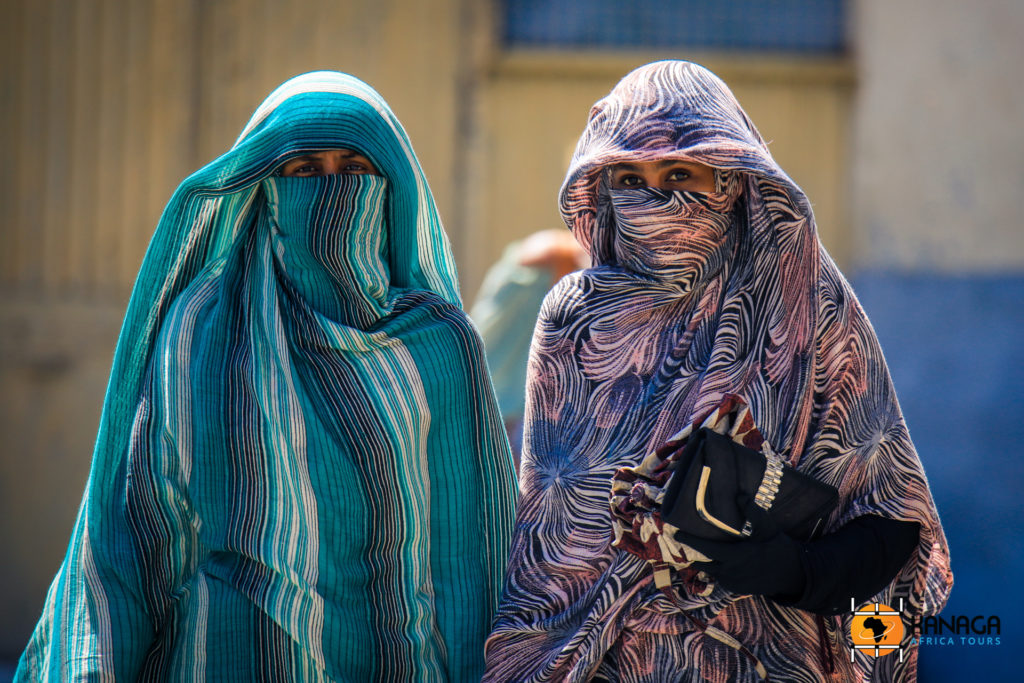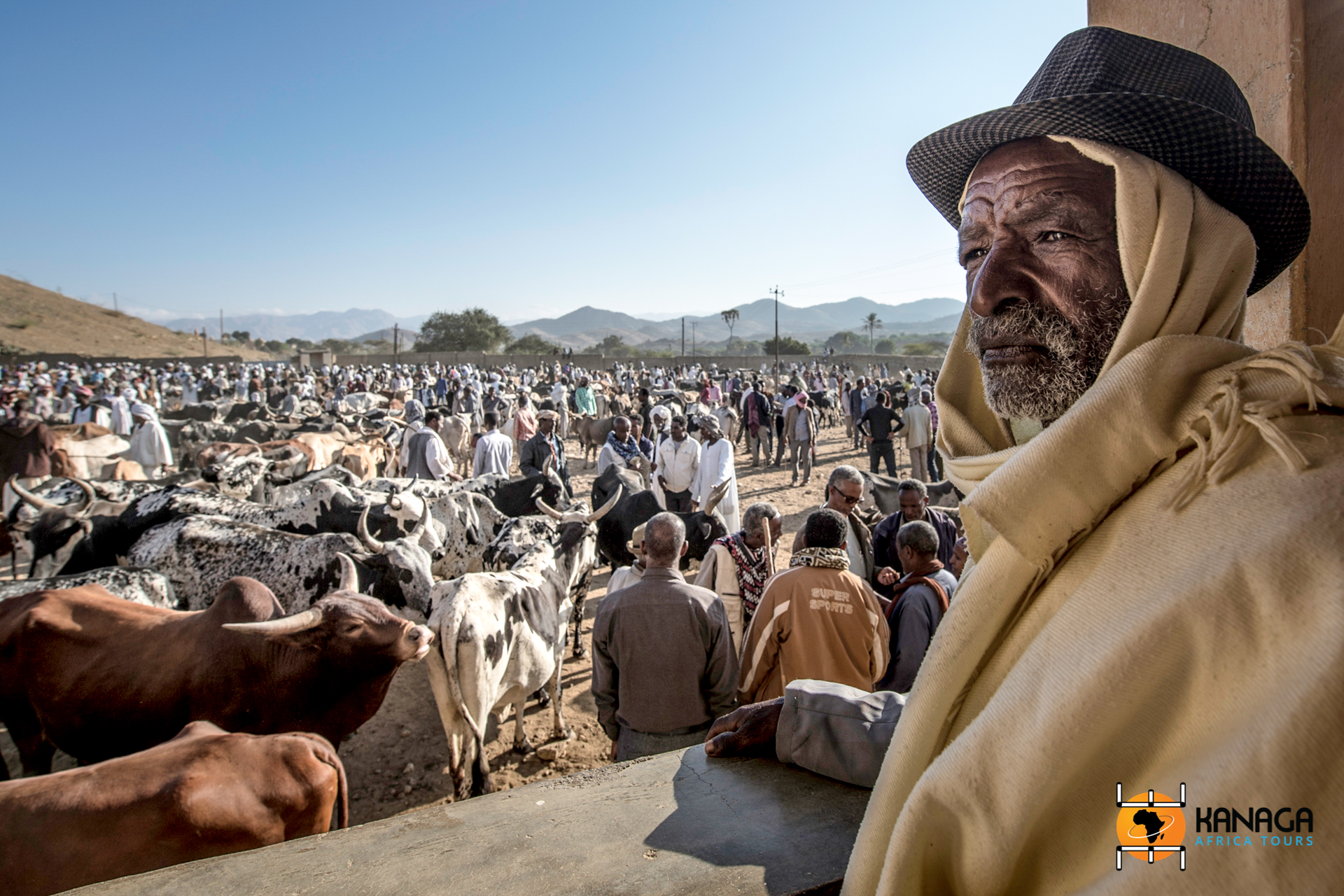© M. Bartolini
If Asmara is the “Italian” face of the highlands, the stronghold of a Tigrayan soul, and Massawa the Ottoman jewel, of ancient Arab-Islamic descendants who arrived on the coast with the centuries-old sea routes, the beating heart of the deepest Eritrea, a cross-section of the rural hinterland, is the city of Keren and its colourful markets, in the Tigré region.
Lying on a central-northern lowland, Keren represents one of the most evocative ethnographic frescoes of pastoral Eritrea, where nomadic or semi-nomadic peoples and settled farmers meet: Afar, Tigrayan, Bilen, Tigre and the “landlords”. A lively sample, which is also found in a varied mix of architectural buildings, including mosques, churches, colonial constructions and traditional tukul villages, as a prelude to this town, which appears amidst typically “Sudanese” vegetation, dotted with baobabs and acacias.
A hustle and bustle of herds, merchandise of all kinds, beautiful Bilen women richly adorned with jewellery and nose rings, colourful fabrics and henna dyes on their amber skin, small gatherings of Tigre and Afar men enjoying tea (shai) in frothy glass cups, elegant Tigre girls with their refined braided hairstyles, triumphs of fruit and vegetables, cereals and spices, textiles and utensils.
The products of the land of the Bilen settled farmers and the semi-nomadic Tigre peoples, meet the camels and the Dancal salt bars of the Afar Muslim nomads or their catch from the Red Sea, Koranic cultures meet Tigrean orthodoxy. A mélange of faces, hairstyles, traditional dress, cultures and religions. The cereal market that forms the backdrop to the Italian cemetery, the silversmiths’ stalls, of which Keren’s craftsmen are the most skilled, the atmospheric camel market on the outskirts of the city and the British war cemetery, erected following the numerous battles fought between the Italians and the British. A potpourri, to which is added the sanctuary of St. Maryam Dearit, a mystical place of Christian pilgrimage near a spectacular baobab tree, venerated as a bearer of fertility, according to an ancestral animist sentiment that still survives today in syncretism with the monotheistic religion. It is the custom here for women seeking marriage to come to the shade of the monumental tree to prepare coffee (bunna), according to the ancient local ceremony, and offer it to passers-by in the hope that their wish will come true. Accompanying the lively atmosphere of the colourful market are the distant echoes of ancient oral legends of the Tigre people, their drums and the plucked strings of the mesenko, which resound among the encampments of traditional meadeni and agnet dwellings.







